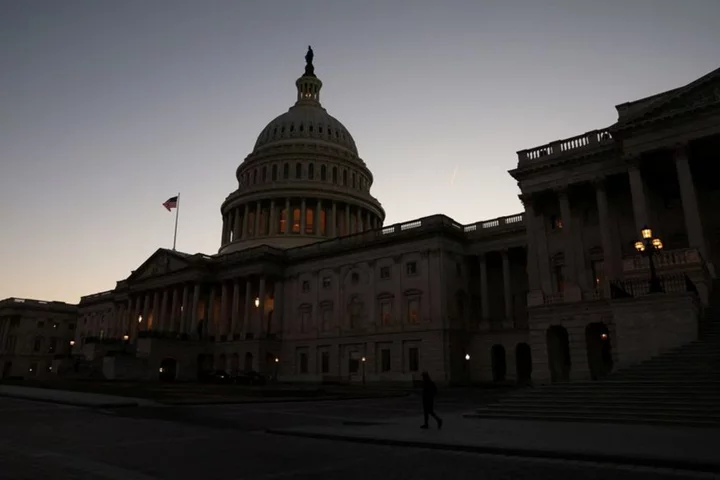By Joseph Ax
NEW YORK Brewing battles over redistricting from New York to Utah may result in new congressional maps for at least half a dozen states before the 2024 election, with control of the closely divided U.S. House of Representatives in the balance.
The 2022 election – in which Republicans captured a slim 222-213 majority in the House – took place under maps based on the 2020 U.S. Census and intended to last a decade. But a series of legal challenges, including a major U.S. Supreme Court ruling, have cast many of those district lines into doubt.
In several states controlled by one party, both Republicans and Democrats may have a fresh opportunity to draw new districts and boost their chances of winning additional seats, a process known as gerrymandering. In other states, courts appear poised to force lawmakers to abandon gerrymandered plans in favor of fairer maps.
"With the House closely divided, these seats could make all the difference," said Michael Li, a redistricting expert at New York University's Brennan Center for Justice. "It's that simple."
Here are some states that may see new maps ahead of the November 2024 election:
BLACK-MAJORITY DISTRICTS IN THE DEEP SOUTH
The U.S. Supreme Court in June upheld a lower court ruling that Alabama's Republican-drawn 2022 map illegally denied Black voters an opportunity to elect representatives of their choice.
Black voters make up more than a quarter of the state's population, but the map included a single majority-Black district out of seven – the only one currently held by a Democrat. The lower court ordered lawmakers to draw a second district with either a Black majority or "something quite close."
Last month, Republicans passed a revised map that increased the number of Black voters in one district but fell well short of a majority.
Civil rights groups have asked the court to throw out the second map as well, and the court has scheduled an Aug. 14 hearing. If the court agrees with the plaintiffs, a new map would likely give Democrats a second House seat.
Legal experts said the ruling bolsters similar challenges in Georgia and Louisiana, where voting rights groups have argued that Republican-drawn maps marginalized Black voters. In Louisiana, where a judge has already indicated the map is illegal, a hearing is scheduled for October. The Georgia case heads to trial next month.
Those cases could yield another Black-majority district in each state, potentially giving Democrats two additional seats.
REPUBLICAN GAINS AT STATE SUPREME COURTS
Republicans won pivotal state Supreme Court elections last November in North Carolina and Ohio, ushering in new conservative majorities after more moderate courts ruled Republican-drawn maps were illegally drawn to hurt Democratic voters.
In North Carolina, that victory has already paid off; the court's new right-wing majority in April reversed its prior decision, effectively giving the Republican-dominated legislature permission to implement a partisan map. The result is likely to be a gain of at least three Republican seats.
In Ohio, the state Supreme Court appears set to alter course after previously finding Republican maps violated the state constitution's prohibition on gerrymandering. Anti-gerrymandering activists are already anticipating a reversal and have begun working on a new ballot initiative to strengthen the constitutional language in time for 2026.
Depending on how aggressively it acts, Ohio's Republican-controlled redistricting commission could design a map this fall locking in 12 or even 13 Republican seats out of the state's 15, up from the 10 held by Republicans now.
DEMOCRATIC GAINS AT STATE SUPREME COURTS
In New York, Democrats are eyeing another chance at redistricting after the state's highest court, the Court of Appeals, threw out their 2022 map as illegally partisan. Since then, the court's makeup has shifted left, after Governor Kathy Hochul appointed a liberal judge to replace a retiring moderate.
The court is currently weighing whether a new map should be used in 2024, as Democrats have argued. If the court agrees, a bipartisan commission would start the process. But under state law, the Democratic-dominated legislature has the final say.
Democrats could design a map that endangers as many as six Republican incumbents while still passing legal muster with a more amenable Court of Appeals, political analysts said.
In Wisconsin, the most expensive state Supreme Court election in U.S. history resulted in a new liberal majority. The winning candidate, Janet Protasiewicz, who was sworn in on Tuesday, called the current Republican-drawn maps "rigged" during the campaign, and Democrats have expressed interest in challenging them before the new court.
On Wednesday, a left-leaning legal group and other organizations filed a lawsuit targeting Wisconsin's state legislative maps, but not the congressional map. At a press conference, a lawyer for the plaintiffs said the lawsuit was just a "first step" when asked about congressional districts.
A fairer congressional map would likely make two Republican-held seats more competitive, according to analysts. Republicans hold six of eight seats despite Wisconsin's status as a swing state.
OTHER BATTLES
Last month, the Utah Supreme Court heard arguments over the state's Republican-drawn congressional map, which carved Democratic Salt Lake County into four separate districts.
Voting rights groups argue the map is an illegal gerrymander under the state constitution.
Republicans, meanwhile, have filed a challenge in New Mexico, where a Democratic-drawn map helped the party sweep all three districts in 2022. The state's top court has ordered a lower court to rule on the matter by October.
(Reporting by Joseph Ax; Editing by Colleen Jenkins and Grant McCool)









